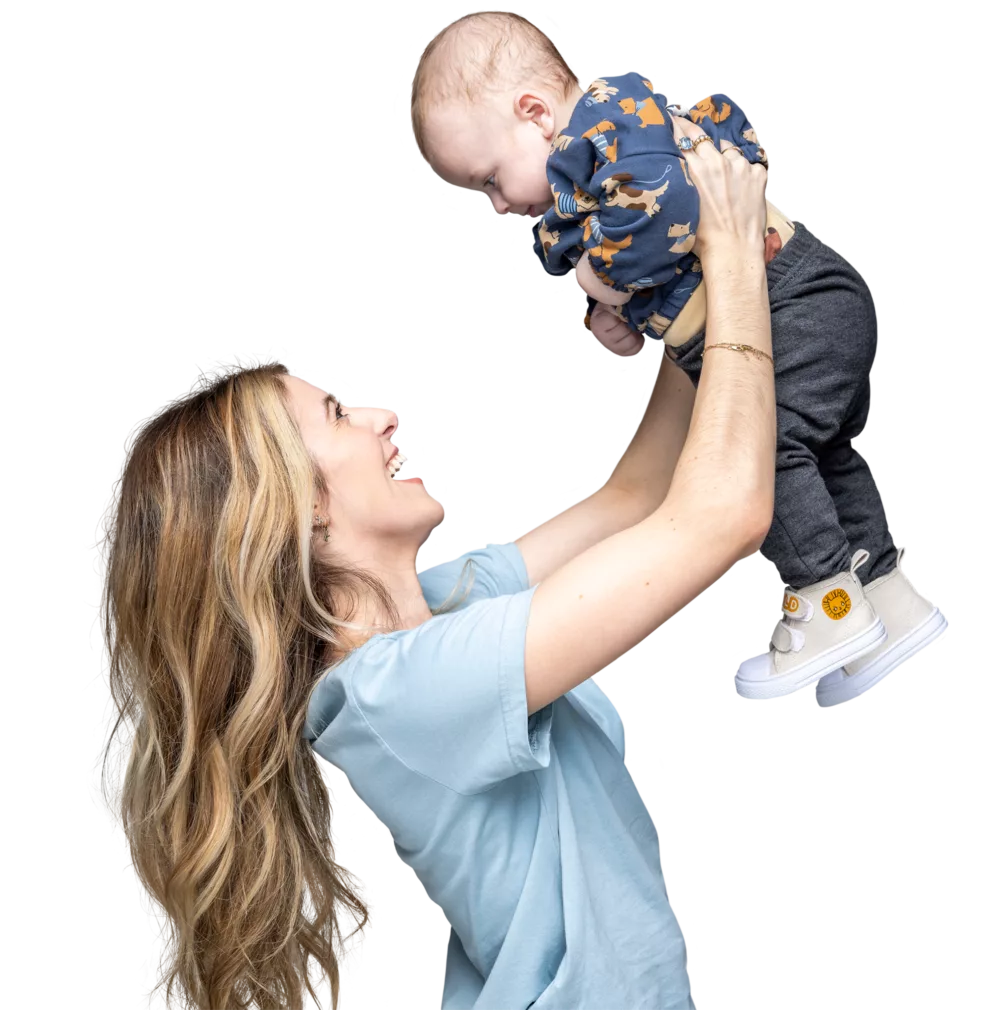Being informed
Getting to know a bit more about how your body works and how hormones work will help you.
There are many reasons why people may have issues conceiving. Age is probably the most important factor of all. For example, a woman aged 35 has about a 15% chance of conceiving each month, which by the age of 40 has dropped to approximately 5% each month.
General health also has a part to play, such as being fit, being at your ideal body weight, and eating well. Previous and existing health conditions might also have influence on your ability to conceive. Regardless of this, some people will still experience unexplained infertility which, though difficult to understand, can still have good outcomes with fertility treatment.
If you have been trying to conceive and it is not happening as you expected, you are not alone.
Latest research shows that up to 25% of us experience some kind of infertility when trying for a baby. The good news is that you are in the right place to take the first step. Our dedicated team of highly experienced doctors and scientists deliver world-leading fertility treatments and personalised care to give you the best chance towards starting a family.
The best thing you can do is talk to us.
Seeking fertility information is one of the best things you can do – and if you need more clarity or are feeling worried for any reason, having an appointment with one of our fertility doctors is the best option.
Age
How age affects fertility is the most important factor when having a baby. Young women without fertility problems have about a 25% chance per month of having a baby naturally if they try at the right time of the month. This falls to about 12% at age 37 and 5% at 42. Today, more women than ever over 40 are wanting to have their first child. It is possible, but the older you are, the more likely you are to need help. To work out your chances visit our biological clock.
Understanding how long you should wait before seeking help is really important.
The online Biological Clock can tell you how long to try naturally, before seeking help. Put in your age and how long you have been trying and the Biological Clock will tell you when you should be seeking help. Have you got time to wait?
If you’re in your late 30s and haven’t been able to conceive after six months of trying, then it’s time to seek assistance and explore your options.
There are a few things you can do to help your fertility along - sometimes small but important changes you can make to boost your fertility. Eating well to maintain a healthy BMI, stopping smoking, and minimising alcohol are just some of these. Did you know that 50% of fertility factors are male and 50% female? Our boosting fertility page has lots of useful tips for both women and men – as fertility issues can stem from either partner.
Eating well to maintain a healthy BMI, stopping smoking, and minimising alcohol are just some things you can do to boost your chances of pregnancy. Have a look at our boosting fertility page with lots of useful tips for everyone - remember, fertility issues can stem from either partner.
Fertility timeframe: there is a fertility test that estimates ovarian reserve called the Anti-Mullerian Hormone (AMH) fertility test. This test can help predict how many eggs we are likely to be able to obtain during an IVF cycle and it can help identify those who may experience early menopause. Like most tests, reading AMH results takes in a number of variables, so it's useful to have the help of a fertility specialist to interpret the results. Talk to us (or your GP) about arranging your test.
Get to know more:
Fertility Associates offers you the best chance
Fertility Associates has assisted in the successful conception of over 29,000 babies since 1987 – that’s the equivalent of one child in every classroom in New Zealand. We are committed to providing you the best possible treatment with your individual plan together with specialised personal care to get you pregnant!
If you have questions about your fertility but are not quite ready to seek specialist help we also offer a free 15 minute confidential telephone consultation with an experienced fertility nurse. It’s easy to take the first step - just book your free nurse consultation through our website, or visit one of our specialised clinics located throughout the country. Give yourself the very best chance with Fertility Associates. Contact us today 0800 10 28 28.







